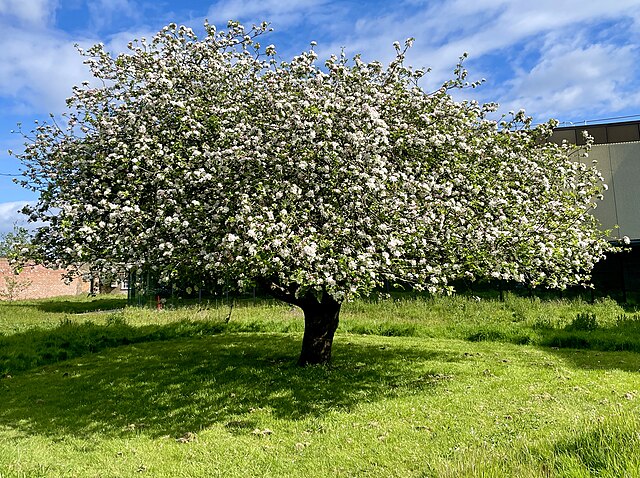
Newton’s Apple And Other Scientific Myth
Most of us have heard the story of Isaac Newton sitting under an apple tree when one fell from a branch and bounced on his head, much to his surprise. Supposedly, this sudden impact of a falling object on his cranium caused some strange neurochemical event that led to a ‘Eureka moment’ of intellectual enlightenment, which in turn led to his momentous discovery of the force of gravity. Or so the story goes.
The Newton Apple Myth Explained
While there is a kernel of truth here, it is mostly a myth. Historians have found a manuscript written by his contemporaries that provides something more likely closer to the truth. It refers to an evening after dinner when a contemplative Newton took to the garden, watched the wind fall apples, and questioned why they always descended perpendicularly to the ground, rather than going sideways or upward. He concluded that the Earth draws things down and that there must be a drawing power in matter. This insight evolved into gravitational theory, which was tested and proven over several years.
Galileo’s Mythical Leaning Tower Of Pisa Experiment
Galileo is credited with dropping two spheres of different masses from the Leaning Tower of Pisa to demonstrate that they would hit the ground at the same time, challenging Aristotle’s theory that heavier objects fall faster. It has become part of physics folklore even though Galileo does not mention the Leaning Tower of Pisa in any publications. The only place that the Leaning Tower is mentioned as an experimental medium is in an isolated biographer’s account of Galileo’s work, which contained scientific inaccuracies done when Galileo was very old and blind. Obviously this has led the scientific community to doubt this version of events.
Humans Only Use 10% Of Their Brains
For many years a myth has circulated that humans only use 10% of their brains. It’s a seductive idea that a genius is locked inside all of us just waiting to get out. However, this has been debunked by a study published in Frontiers in Human Neuroscience. Using functional magnetic resonance imaging (fMRI), researchers have shown that most of our brain is being used most of the time, even when carrying out simple tasks. A lot of the brain remains active even while sleeping.
Neanderthals Were Less Evolved Than Homo Sapiens (Humans)
The term Neanderthal is often used in a derogatory way to describe behaviour or a person thought to be behaving in a primitive way. The metaphorical choice of the word reflects the fact that Neanderthals are widely considered to be mentally inferior to humans. Recent research has debunked this, suggesting that Neanderthals were not just most likely stronger than us, but also had bigger brains and were probably just as smart as Homo Sapiens. They made jewellery, buried their dead, probably had some level of spoken language, and had tools to create fire.
Ostriches Bury Their Heads In The Sand
One of the great zoological myths is that ostriches bury their heads in the sand when frightened. They don’t bury their heads in sand to avoid danger for two reasons. The first is that they would not be able to breathe and the second is that they are the fastest animal on two legs and their 40 mph running speed would be a more effective solution to any threat! Also, at 9 feet tall and 350 pounds in weight an Ostrich can kick hard enough to kill a lion.
If you are interested in studying a Science subject or History, Oxford Open Learning offer you the chance to do so at several levels, listed below. You can also Contact Us.